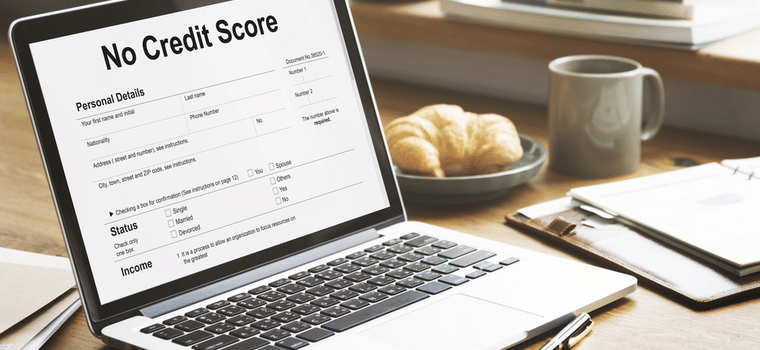Without a credit history, you won’t have a credit score. While this logic sounds simple enough, the implications are much more complex.
A credit score is an essential requirement for a credit card, auto loan or mortgage. And service providers like cellphone providers usually want to see your credit score too.
So if you don’t have a credit score, what can you do? Read on to find out the reasons why your credit score doesn’t exist — and what you can do.
No Credit Score
If you’ve never opened a credit card, secured a loan or had a mortgage, then you won’t have a credit score.
FICO and VantageScore are the two major credit scoring companies used by the credit bureaus to establish your scores. For FICO to issue a credit score, it requires that you have at least one active credit account with reported activity in the last six months and one credit account that’s older than six months.
VantageScore tends to be more consumer-friendly and will provide you with a credit score with just one month or more of reported activity.
If You Have No Credit, What Is Your Score?
Without a credit history, FICO and VantageScore don’t have the data necessary to create a score. This can be a big deal because your credit score is the number that informs lenders, creditors and other entities about your creditworthiness.
If you’ve only used cash to pay for goods and services, or if you do have a credit card but haven’t had any credit activity in 24 months, you likely won’t have a credit score. Children and young adults who haven’t yet opened their own accounts, or been an “authorized user” on a parent account, won’t have a credit score either.
And remember, since FICO requires you to have a credit account open and active for at least six months, if you haven’t hit that milestone yet, your credit score won’t exist.
What Do You Do If You Don’t Have a Credit Score?
If you find yourself saying, I have no credit score, it’s time to take action.
An established credit history is required for many things, from qualifying for a mortgage to securing almost any type of loan. Here are some ways you can jump-start your credit history:
- Open a retail store credit card: Apply for a credit card with a specific retailer.
- Apply for a student credit card: If you’re enrolled in a school, you’re eligible.
- Establish a bank credit card: Apply with your bank or credit union.
- Ask to become an authorized user: Ask a friend or relative to list you as a co-user on his or her existing credit card.
- Get a joint credit card: Partner with a relative for a new credit card.
The sooner you can establish good credit, the better off you’ll be, particularly because credit scores are impacted by credit age (the age of your oldest account), credit mix (the types of accounts you have) and payment history (whether you pay your bills on time).
Now is the time to kick off good credit habits.





